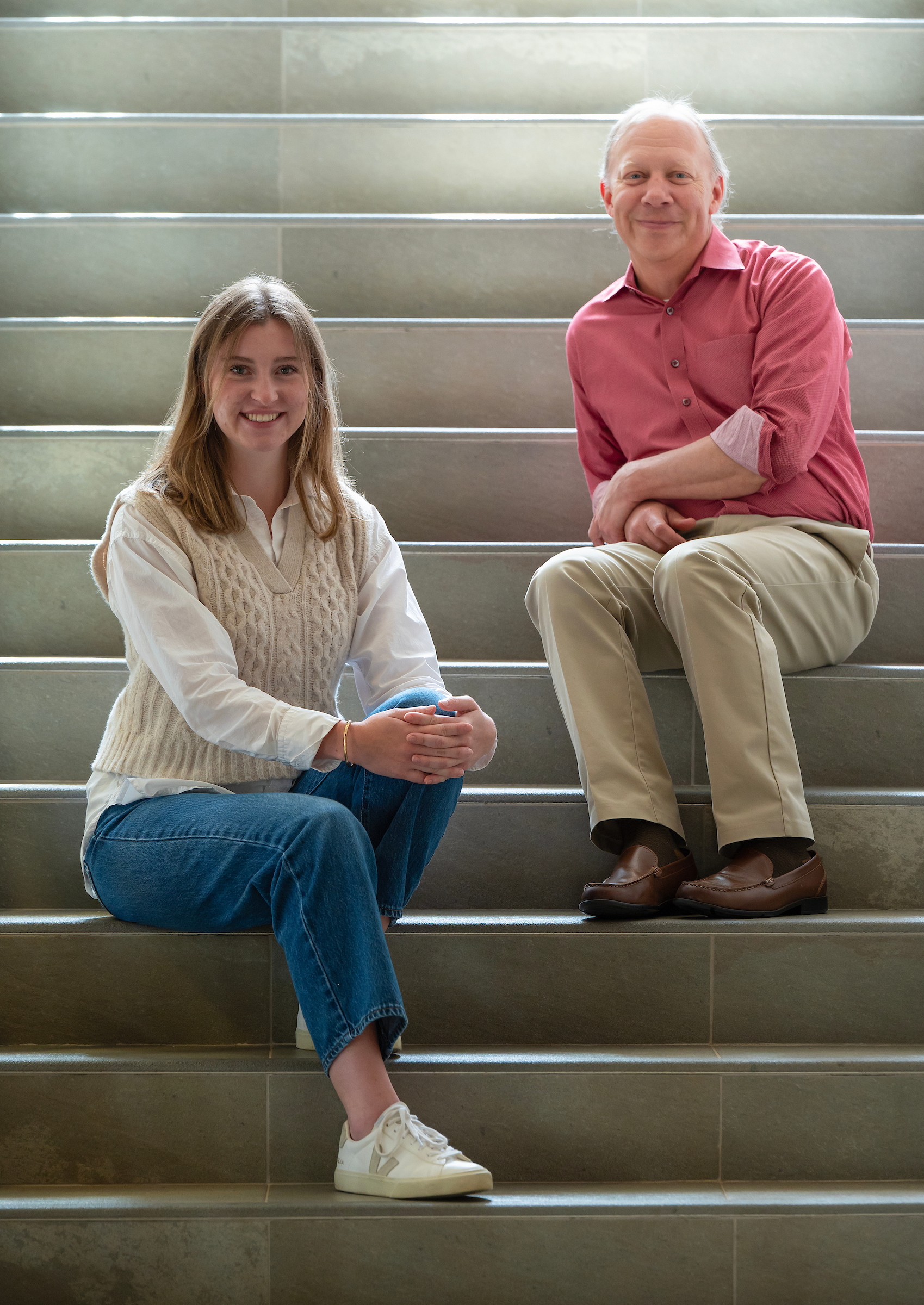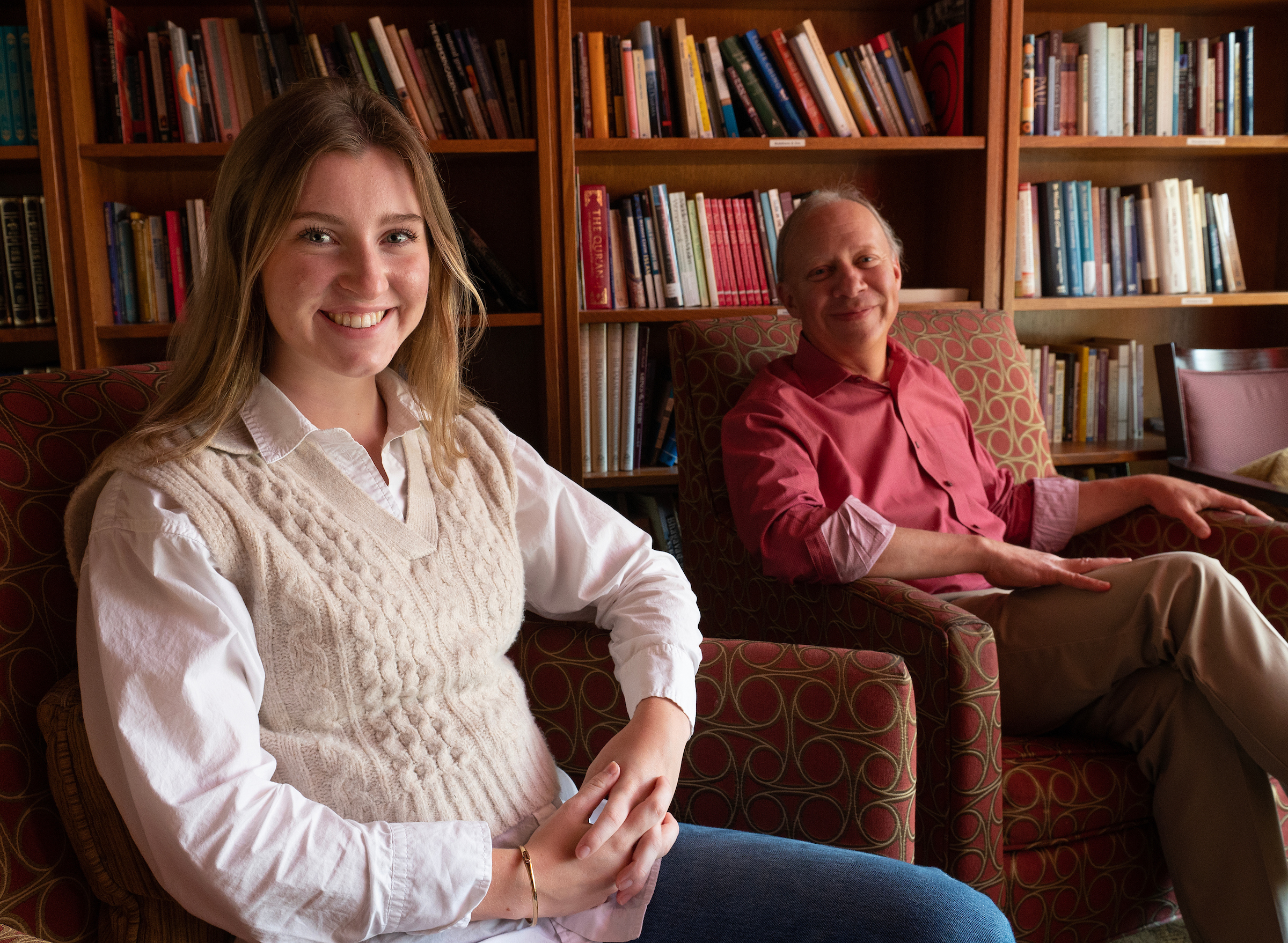Following years of research and an eight-week study abroad experience in Cairo, Triche's Lumen Prize research has found that secularism has become both a tool for and a justification of authoritarianism in Egypt.
In June 2022, Natalie Triche ’23 found herself alone in Cairo looking to speak with Egyptians on the rise of authoritarianism following the Arab Spring for her Lumen Prize research. The same authoritarian framework made it near impossible to speak openly with locals and Triche found she’d have to pivot the scope of her research.
“In my head, I was going to Egypt to talk to people and learn their stories and how their identities have been shaped 10 years after the Arab Spring,” she said. “But you can’t really talk about the government publicly in Egypt, and my project was all about that. So, I had to shift in situ about how I engage.”
Triche, an international and global studies major, turned her focus to participant observations and structured conversations to conduct ethnographic fieldwork. The objective of the research remained the same as Triche sought to gain an understanding of Egyptian secularism and nationalism. “It’s hard to summarize anthropological work,” she said, “but I found that since the Arab Spring, secularism has become both a tool for and a justification of an authoritarianism that impinges on people’s everyday lives and awareness more than ever.”
In addition to her study abroad experiences, Triche’s research draws on four years of Arabic language study with Lecturer of Arabic Shereen Elgamal and a week-long field method training intensive course with mentors in Israel and Palestine.
“Learning from scholars in the field helped my Lumen Prize research,” she said. The Lumen Prize is Elon University’s top research award that provides 15 rising juniors with $20,000 to advance their undergraduate research projects.

She eventually presented her findings from the eight-week trip to Egypt at the Summer Undergraduate Research Experience (SURE) at Elon in July and the American Academy of Religion Southeast Conference earlier this spring. She’s also in the process of submitting an article detailing her findings to professional journals.
Being confident enough to conduct research, present it and shift focus midway is far from where she started. When applying for the Lumen Prize, she asked her mentor, Professor of Religious Studies Brian Pennington, “What is research?”
Although once naive to the nuances of high-level research, the numerous presentations and grant applications over the past two years have helped her grow more comfortable. “As the project progressed, I felt more and more qualified,” Triche said. “I am able to articulate what the research process is and what doing research means.”
Pennington, who serves as director of the Center for the Study of Religion, Culture and Society, said her progress as a researcher, understanding of the Arabic language, the sensitive nature of the ethics involved and the complicated literature, has impressed him.
“Natalie has been supremely attentive to those kinds of ethical details and concerns,” he said.
Triche first met Pennington during a community event at the Burlington Masjid as a part of her first-year global experience foundations class. Two weeks later, during Family Weekend, Triche and her family ran into Pennington again and this time he invited her to stop by his office sometime.
It was during this meeting in her first semester at Elon that the preliminary discussions about undergraduate research began. “He encouraged me to be in religious studies. I came to Elon not thinking of myself as an excellent student. I came to college not exactly sure what my path was going to be for the next four years,” Triche said. “He always helped me seek big goals for myself and encouraged me to apply to everything I could and take every opportunity.” A paragon of her academic development, Triche was named a semifinalist for the 2023-24 Fulbright U.S. Student Program applying for a study/research grant to Morocco.
Actively seeking such opportunities has turned Triche into a dedicated student, Pennington said, one that he is both honored and grateful to mentor. Since coming to Elon in 2014, Pennington has been involved with various long-term research student research projects, through the Lumen Prize and Multifaith Scholars. His role as a mentor has been a deeply rewarding experience, both for how he can help guide students and for how the students are able to inspire and enrich his experience as well.
“It’s a joy to work with students who are as enthusiastic about learning as Natalie is,” Pennington said.
“Additionally, for me, I’ve learned a great deal about the world from these global undergraduate research projects, working alongside students and trying to understand places like Egypt that are not part of my own scholarly research agenda. Academically and intellectually I’ve benefited a tremendous amount myself.”



